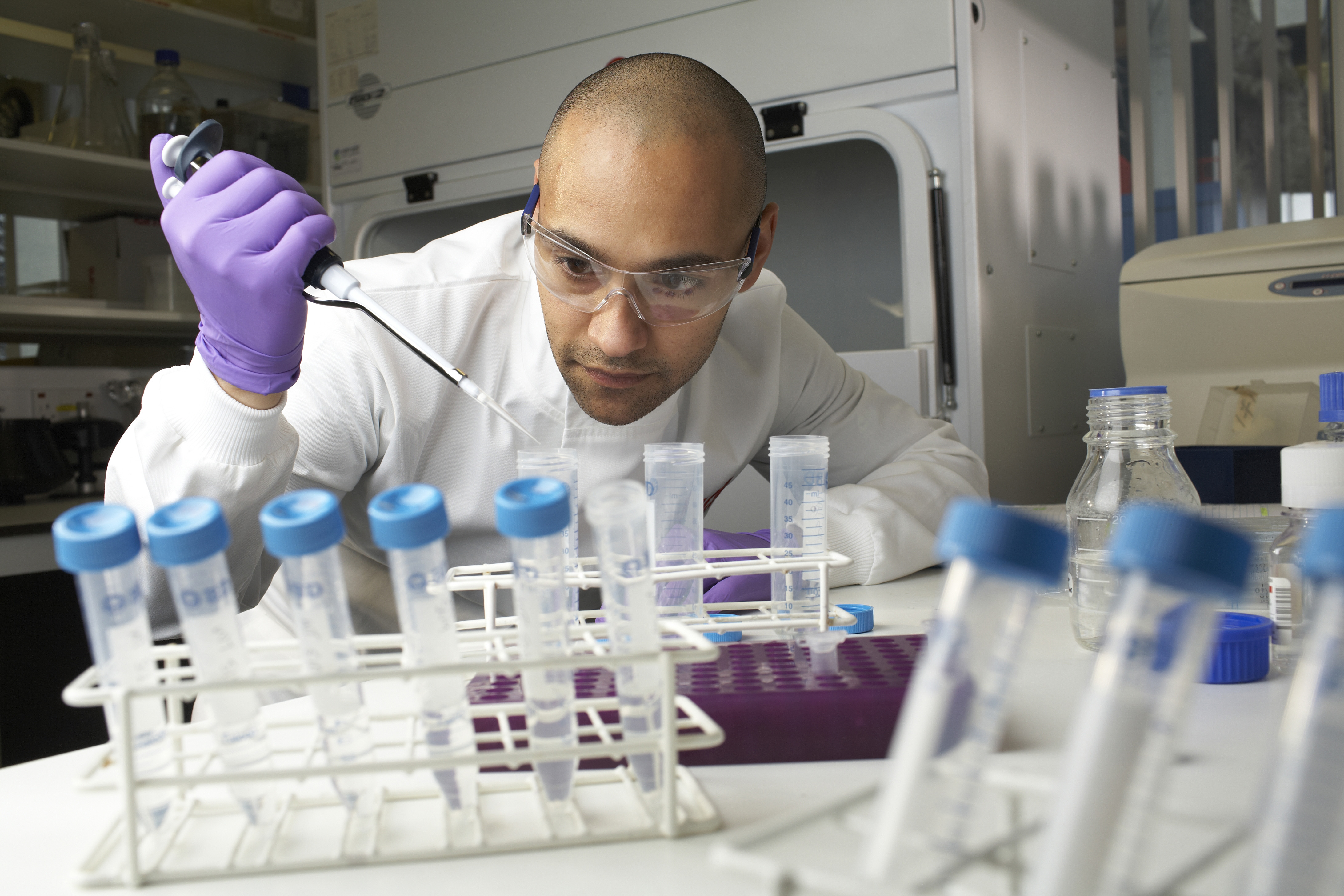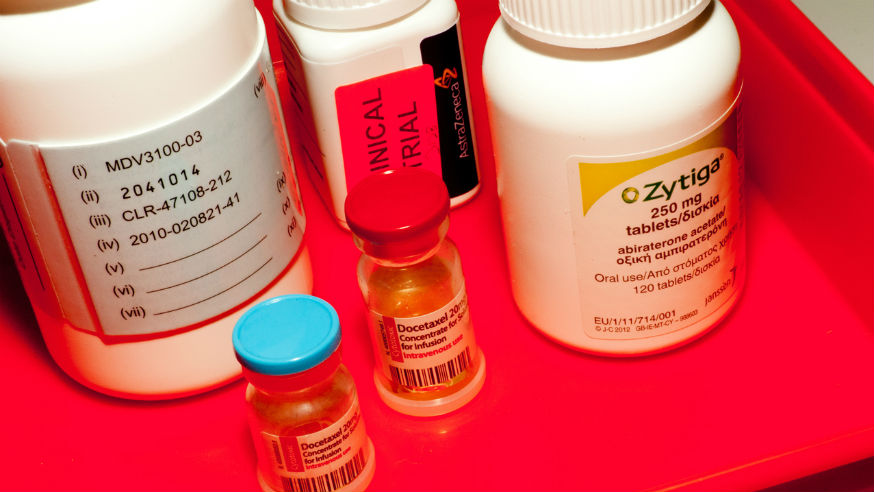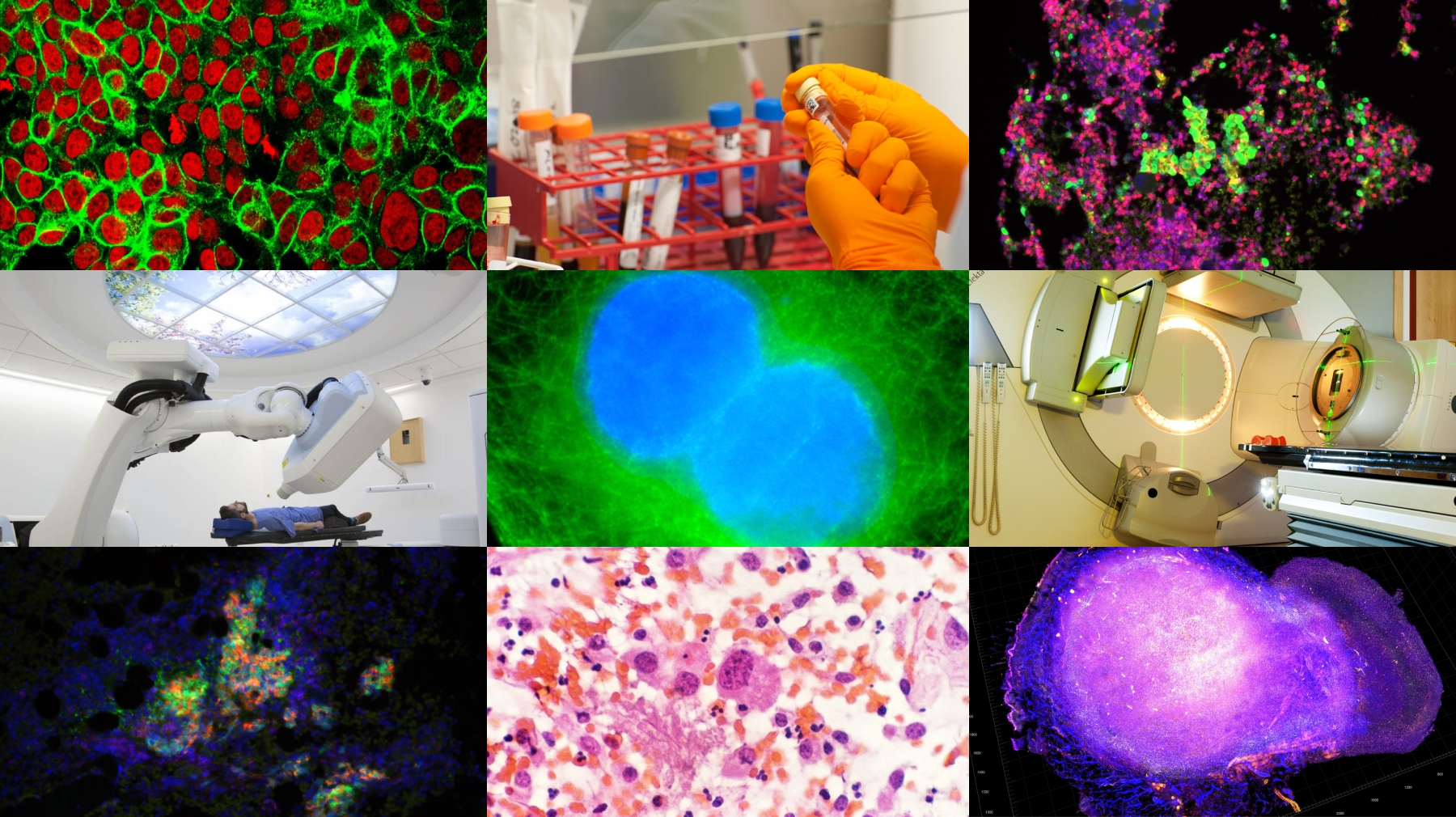Drug discovery and therapeutic innovation
Here at The Institute of Cancer Research, we are a powerhouse of drug discovery. Since 2005, 13 of our drugs have entered clinical trials, and many more current cancer medicines are rooted in discoveries made here. The key to our success is team science, with ICR researchers working across disciplines to create innovative approaches to cancer therapeutics.

The ICR hosts the world-leading Centre for Cancer Drug Discovery, previously known as Cancer Research UK Cancer Therapeutics Unit, which has discovered 21 new targeted drug candidates since 2005 – more than any other academic centre in the world. Thirteen of these have gone into clinical development.
In addition to this, abiraterone – a drug for prostate cancer discovered at the ICR – is now standard treatment for advanced prostate cancer and has benefited hundreds of thousands of men with the disease worldwide.
We also discovered how to genetically target the drug olaparib, which is now used on the NHS to treat ovarian and breast cancer patients who have BRCA mutations, and has been approved in the US for a similar subset of patients.
And our science underpinned the discovery of the drug classes, AKT inhibitors, BRAF inhibitors and PI3K inhibitors.
Meeting the challenges of cancer evolution and drug resistance
Over the coming years our focus, laid out in our research strategy, will be on the discovery of drugs designed to meet the challenges of cancer evolution and drug resistance.
We aim to discover greater numbers of exciting new cancer treatments, including a new drug targeted against a novel evolutionary mechanism, and a new immunotherapy.
As part of this, work has already begun to create new drug discovery facilities closely integrated with the work of our Centre for Evolution and Cancer.
We will also combine current therapies in new ways, applying our understanding of cancer’s complex signalling networks to block the paths to resistance.
And we will lead advances in adaptive therapy by developing rapid tests to assess treatment response and resistance.
Our commercialisation successes
The ICR is one the most successful academic institutions in the UK at earning invention income from its research.

The ICR works with industry to commercialise its discoveries as the fastest way of taking new drugs and technologies to patients, and ploughs income earned back into its research so further patients can benefit.
We are the most successful academic institution in the world at discovering new cancer drugs – discovering 20 new targeted cancer drugs, and taking 11 new drugs into clinical trials, since 2005 alone.
Abiraterone, kinase inhibitors and Hsp90 inhibitors are examples of the ICR's success at drug discovery, and the importance of our partnerships with industry in taking drugs into trials.
In the 2020/21 academic year the ICR received more than £20 million in invention income – the most income of any UK higher education institution per member of academic staff.

